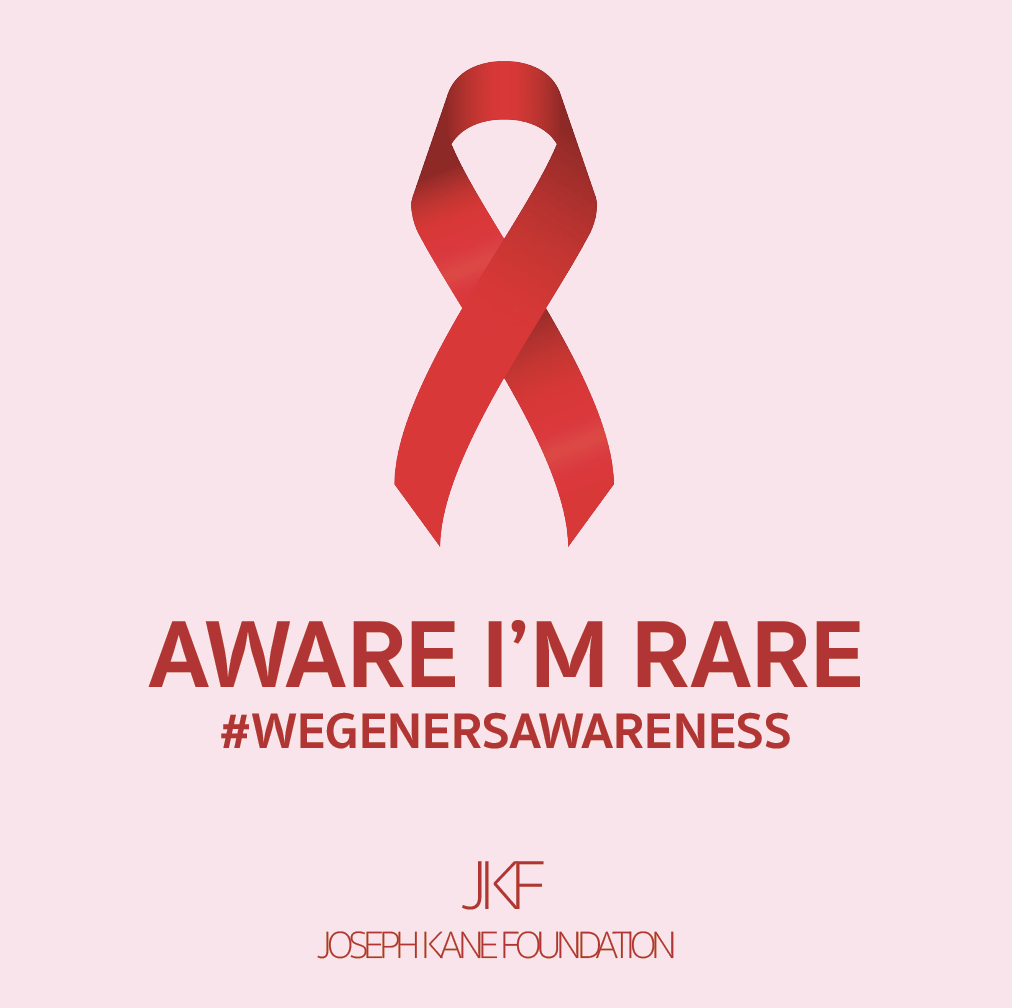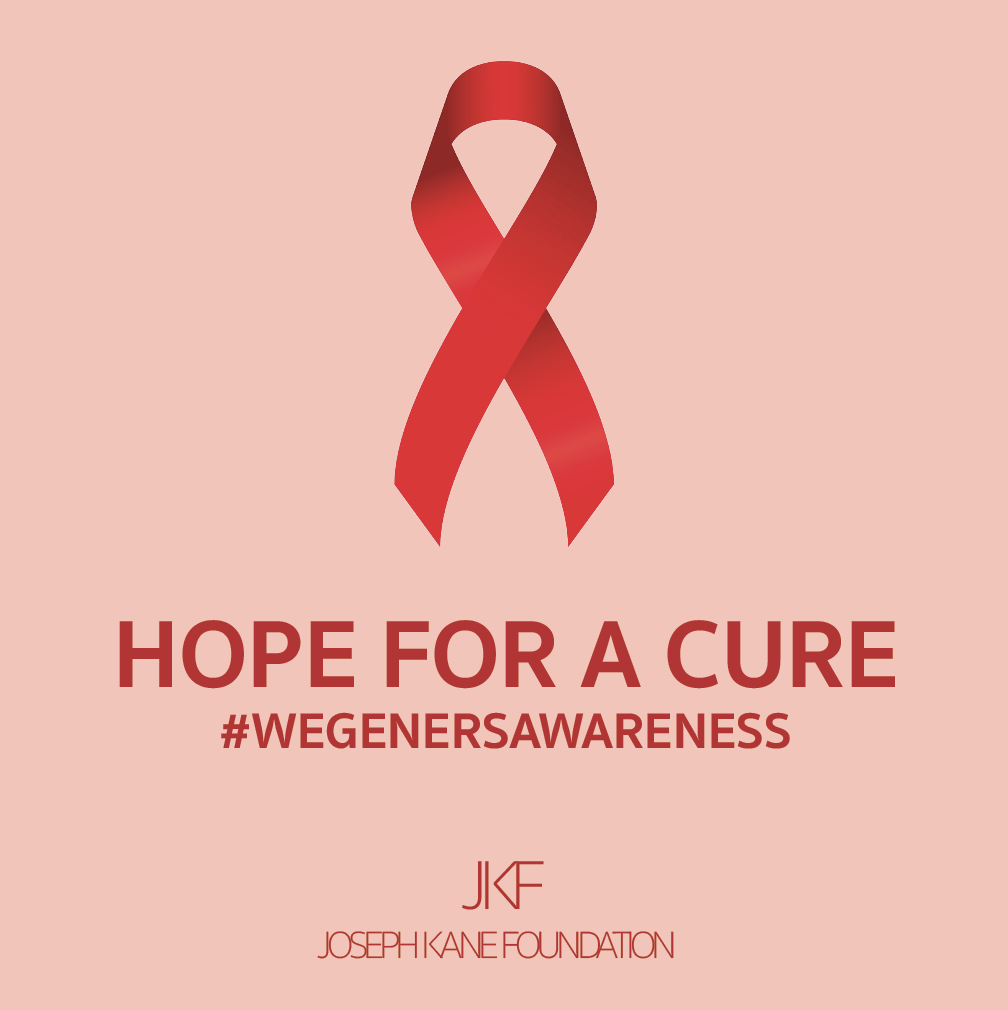JOAN KANE FUND
Help us make a life-changing impact on individuals battling Wegener's Granulomatosis and similar conditions. The Joan Kane Fund is partnering with hospitals to cover treatment costs that insurance won't support. By donating today, you directly contribute to saving lives, alleviating financial stress, and inspiring a compassionate community. Together, let's be the difference!

TOWARD HEALTH

TOWARD LOVE

TOWARD COMMUNITY
FIGHTING WEGNERS TOGETHER
FIGHTING WEGNERS TOGETHER
Join us in our collective efforts to put an end to Wegener's, an autoimmune disease that persists with unwavering tenacity. This condition may be relentless, but our determination is equally steadfast. Together, let's unite in the fight against it! Your support makes a difference as we work together to conquer the challenges posed by Wegener's and strive for a future free from its impact.

JKF is a nonprofit organization fighting disease and inequity as well as advancing emergency response around the world.
The Joseph Kane Foundation supports the development of protected, healthy, and just communities where next generation leaders can thrive. JKF funds programs to improve the imperative safety of our communities (including financing K9 units), promote equality and social progress; support effective education initiatives for youth all around the world.
Tackling GPA from Every Direction
Advancing research. Improving lives.
-
Granulomatosis with Polyangiitis (GPA, formerly called Wegener’s)
Granulomatosis with polyangiitis (formerly called Wegener’s) is a rare disease of uncertain cause that can affect people of all ages. It is characterized by inflammation in various tissues, including blood vessels (vasculitis), but primarily parts of the respiratory tract and the kidneys.
Granulomatosis with polyangiitis (GPA, formerly called Wegener’s) is a rare disease of uncertain cause. It is the result of inflammation within the tissues called granulomatous inflammation and blood vessel inflammation ("vasculitis"), which can damage organ systems. The areas most commonly affected by GPA include the sinuses, lungs, and kidneys, but any site can be affected.
-
The cause of GPA is unknown. GPA is not a form of cancer, it is not contagious, and it does not usually occur within families. Evidence from research laboratories strongly supports the idea that the immune system plays a critical role in GPA such that the immune system causes blood vessel and tissue inflammation and damage.
-
GPA can occur in people of all ages. The peak age groups affected are from 40-60 years. It appears to affect men and women equally.
-
GPA has symptoms similar to a number of other disorders, which may make it difficult to diagnose. However, for the most effective and successful treatment, early diagnosis is critical.
Once the diagnosis of GPA is suspected, a biopsy (tissue sample) of an affected area is often performed to try to confirm the presence of vasculitis. Biopsies are only recommended for organ sites in which there are abnormal findings present by examination, laboratory tests, or imaging. It is the combination of symptoms, results of physical examinations, laboratory tests, X-rays, and sometimes a biopsy (sample) of affected tissue (skin, nasal membranes, sinus, lung, kidney or other sites) that together prove the diagnosis of GPA. Following treatment, these factors are also critical in judging whether the disease is active or in remission.
A positive blood test for antineutrophil cytoplasmic antibodies (ANCA) can support a suspected diagnosis of the disease. However, this blood test does not by itself prove the diagnosis of GPA or determine disease activity.
GPA often affects the lungs. In patients with GPA that have no lung symptoms (coughing or shortness of breath), imaging tests (conventional X-rays or a CT scan) will show lung abnormalities in up to one third of cases. Therefore, it is important to have lung images performed if active GPA is suspected, even if you do not have any symptoms of lung disease.
-
Because GPA is often a life-threatening disease, it is treated with a variety of powerful drugs that have been shown to be life-saving. Medications that suppress the immune system form the foundation of treatment for GPA. The severity of the disease in each individual case dictates what immunosuppressive medications are used. There are a variety of immunosuppressive medications that are used in GPA, each of which has individual side effects.
People with GPA who have critical organ system involvement are generally treated with corticosteroids combined with another immunosuppressive medication such as cyclophosphamide (Cytoxan ®) or rituximab (Rituxan®). In patients who have less severe GPA, corticosteroids and methotrexate can be used initially. The goal of treatment is to stop all injury that is occurring as a result of GPA. If disease activity can be completely "turned off," this is called "remission." Once it is apparent that the disease is improving, doctors slowly reduce the corticosteroid dose and eventually hope to discontinue it completely. When cyclophosphamide is used, it is only given until the time of remission (usually around 3 to 6 months), after which time it is switched to another immunosuppressive agent, such as methotrexate, azathioprine (Imuran®), or mycophenolate mofetil (Cellcept®) to maintain remission. The treatment duration of the maintenance immunosuppressive medication may vary between individuals. In most instances, it is given for a minimum of 2 years before consideration is given to slowly reduce the dose toward discontinuation.All of these medications are also used to treat other medical conditions. Azathioprine and mycophenolate mofetil are used to prevent organ transplant rejection. Methotrexate is used to treat rheumatoid arthritis and psoriasis. Both cyclophosphamide and methotrexate are given at high doses as a treatment for certain types of cancer and therefore are sometimes referred to as "chemotherapy." In cancer treatment, these medications work by killing or slowing the growth of rapidly multiplying cancer cells. In vasculitis, these medications are given at doses that are 10 to 100 times lower than those used to treat cancer, and their primary effect is to influence the behavior of the immune system in a manner that results in immunosuppression. Rituximab belongs to a class of medications called biologic agents that target a specific element of the immune system. Recent studies found that rituximab was as effective as cyclophosphamide for treating severe active GPA.
Autoimmune diseases strike one in 15 Americans including about 18 million women and 5 million men.
-
Autoimmune diseases strike one in 15 Americans including about 18 million women and 5 million men. Autoimmune diseases are among the top 10 causes of death in female children and women in all age groups up to 64 years of age. The National Institutes of Health estimate autoimmune diseases cost an estimated $100 billion a year in medical care.
There are approximately 110+ different types of autoimmune diseases. However, all autoimmune diseases have one thing in common: the immune system – which is designed to protect the body against infection - makes a mistake and attacks its own healthy tissue
-
Autoimmune diseases include illnesses throughout the body such as: skin (psoriasis), joints (rheumatoid arthritis), nervous system (multiple sclerosis), gut (ulcerative colitis and Crohn’s disease), endocrine system (type 1 diabetes and thyroid disease)
No tissue or organ is exempt from autoimmune diseases. They affect many different organs and vary greatly among the individuals who have them, in terms of their severity and the responsiveness to therapy. This level of complexity is reflected in the underlying causes of autoimmune diseases, including multiple genetic and environmental factors. And because many causes of autoimmune diseases are shared, people living with an autoimmune disease are more likely to suffer from more than one of these destructive diseases.
-
What causes the immune system to no longer tell the difference between healthy body tissues and an infection is unknown. One theory is that bacteria, viruses, toxins or drugs may trigger some of these changes, especially in people who have genes that make them more likely to develop autoimmune disorders.
The immune system is complex and has evolved redundant pathways over millennia in response to diverse challenges. Therefore, scientists think that immune dysfunction will need to be treated with combinations of approaches.
-
Inherited genes play an important role in determining risk of autoimmune diseases. Some genes confer a large risk, other genes confer a small risk, and some genes even provide protection from autoimmunity.
In general, risk is increased among close relatives within a family who have autoimmune diseases, due to the likelihood that genes are shared. That risk ranges from a few percent increase all the way up to an increase of 10- to 20-fold. However, even with these large increases, the overall disease risk can be fairly small. For example, an increased 10-fold risk for an autoimmune disease that occurs in 1 in 1,000 people means that the risk becomes 1 in 100. So while family members have a high likelihood of inheriting disease-associated genes, and they are at higher than normal risk of also getting autoimmune diseases, in most cases the odds are still reasonably low.
-
The incidence of many autoimmune diseases is increasing, including multiple sclerosis (MS), inflammatory bowel disease (IBD) and type 1 diabetes (T1D). There is much ongoing analysis to determine why this is occurring. The increase in autoimmune disease prevalence may be due to changes in several aspects of the environment that disturb the balance of the immune system. These changes make it more likely that someone susceptible to one of these diseases will actually develop it.

Investing in organizations providing focusing on medical research for autoimmune diseases specifically Granulomatosis with Polyangiitis (GPA)
What JKF Funds
The Joseph Kane Foundation has focused on three core objectives: improving safety in local communities, supporting effective education initiatives for K-12 education, and advancing emergency response programs all over the world.
-
We provide support for the safety of communities by funding various initiatives. This includes the training, feeding, and wellness of K9 units in service and assistance for veterans. During times of disaster, we also offer funding to organizations that equip and enable them to effectively aid communities in distress.
-
At our foundation, we are committed to supporting the safety of communities through diverse initiatives. Our funding extends to crucial areas such as the training, feeding, and overall well-being of K9 units in service, as well as providing assistance for veterans. Additionally, during times of disaster, we offer financial support to organizations that equip and empower them to effectively aid communities in distress.
-
Our mission is to enhance achievement and opportunity for children globally. We actively invest in partners who are making a remarkable impact both within and beyond the confines of schools, tackling issues of injustice on a global scale.
#WegenersAwareness
Join the fight!












Make a Donation, Make a Difference
The Joan Kane Fund supports individuals battling Wegener's Granulomatosis and similar conditions by covering medical expenses that insurance doesn't fully support. Your donation, no matter the size, can have a profound impact. It can cover life-saving treatments, alleviate financial stress, and inspire others to contribute. Together, let's be warriors for a worthy cause and provide hope and support to those in need.




